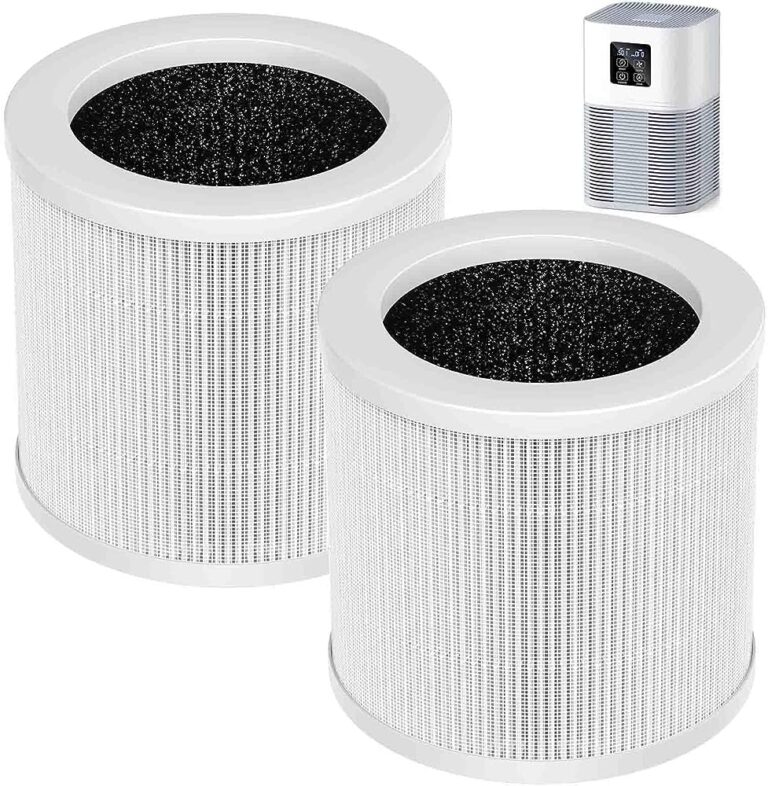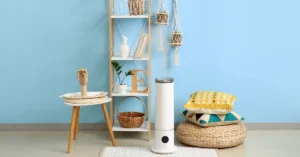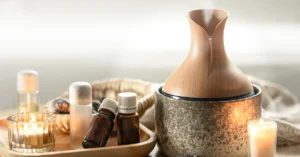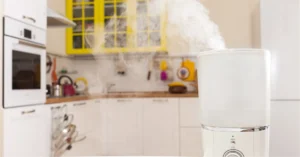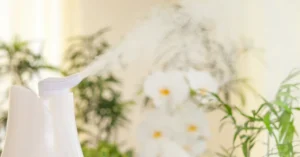Air purifiers typically last for around 5 to 10 years, while the filter lifespan can vary from 3 months to 1 year.
Understanding Air Purifiers And Their Lifespan
Introduction to air purifiers and their importance in maintaining indoor air quality:
- Air purifiers play a crucial role in improving indoor air quality by removing allergens, pollutants, and contaminants.
- The primary mechanism of air purifiers is to capture and filter out particles present in the air.
- Filters are a vital component of air purifiers and are responsible for trapping pollutants and preventing them from recirculating in the room.
- There are different types of filters used in air purifiers, including HEPA filters, activated carbon filters, and pre-filters.
- HEPA filters are highly efficient in capturing small particles such as dust, pollen, pet dander, and mold spores.
- Activated carbon filters are effective in eliminating odors, smoke, and volatile organic compounds (VOCs).
| Filter Type | Lifespan |
|---|---|
| Pre-filter | 3-6 months |
| HEPA filter | 6-12 months |
| Activated carbon filter | 6-12 months |
Important Note: The lifespan of filters varies depending on factors like air quality, usage, and the specific air purifier model. It is essential to follow the manufacturer’s recommendations and replace filters accordingly to maintain optimal performance.
Factors That Affect The Lifespan Of Air Purifiers
Regular maintenance and cleaning is essential for prolonging the lifespan of your air purifier. Several factors can influence how long an air purifier lasts.
Firstly, the quality and type of filters used in the air purifier play a crucial role. High-quality filters with a longer lifespan are more durable and effective in removing pollutants from the air. Cheaper filters may need to be replaced more frequently.
Secondly, the frequency of usage affects the lifespan of the air purifier. If the purifier is running constantly or for extended periods, it may wear out quicker. On the other hand, occasional usage or usage in smaller spaces may extend the lifespan.
Additionally, the air quality in your environment also influences the lifespan. If you live in an area with high pollution levels or use the air purifier in a congested space, it may gather more contaminants, leading to a shorter lifespan.
To ensure your air purifier lasts longer, follow the manufacturer’s instructions for cleaning and replacing filters. Regularly clean the exterior and internal components to prevent dust build-up. By taking these measures, you can maximize the lifespan of your air purifier and continue enjoying clean and purified air for longer.
Different Types Of Air Purifiers And Their Filter Lifespan
An air purifier is an essential appliance that helps improve indoor air quality by removing pollutants and allergens. There are various types of air purifiers available in the market, each using different filter technologies. Here is an overview of the different types and their filter lifespan:
| Air Purifier Type | Filter Types | Filter Lifespan |
|---|---|---|
| HEPA | HEPA filters | Average lifespan of 6 to 12 months |
| Activated Carbon | Activated carbon filters | Typically lasts around 3 to 6 months |
| Pre-filter | Pre-filters | Needs replacement every 3 months |
| UV-C Light | UV-C light bulbs | Bulbs should be replaced every 9 to 12 months |
| Electrostatic Precipitator | No disposable filters | Washable collection plates need regular cleaning |
It is important to note that these lifespan estimates might vary based on usage and air quality. Regularly checking and replacing filters will ensure optimal performance and efficiency of your air purifier. Remember to refer to the manufacturer’s instructions for specific maintenance guidelines to prolong the lifespan of your air purifier.
Average Lifespan Of Air Purifiers And Filters
The lifespan of an air purifier varies depending on the different components it consists of. It is important to replace these components at the recommended intervals to ensure optimal performance and clean air quality.
HEPA Filter Lifespan: High Efficiency Particulate Air (HEPA) filters are known for their ability to trap microscopic particles. Generally, HEPA filters last for about 6 to 12 months before they need to be replaced.
Activated Carbon Filter Lifespan: Activated carbon filters excel at eliminating odors and chemicals. On average, they can last for about 6 to 12 months, but this can vary depending on the level of air pollution.
Pre-Filter Lifespan: Pre-filters are designed to capture larger particles, such as dust and pet dander. They typically have a lifespan of around 3 months before they should be replaced.
| Component | Average Lifespan |
|---|---|
| HEPA Filter | 6-12 months |
| Activated Carbon Filter | 6-12 months |
| Pre-Filter | 3 months |
UV-C Light Bulb Lifespan: UV-C light bulbs are used in some air purifiers to kill bacteria and viruses. These bulbs usually last for around 9 to 12 months before they need to be replaced.
Electrostatic Precipitator Lifespan: Electrostatic precipitators create an electric field to capture airborne particles. They tend to have a longer lifespan compared to other components, typically ranging from 1 to 3 years.
Regularly replacing the filters and other necessary components ensures that your air purifier continues to effectively remove pollutants and maintain clean indoor air. Keeping track of the lifespan of these components is essential for maintaining the performance of your air purifier.
Signs That Your Air Purifier Needs Replacement
When it comes to air purifiers, it is important to know how long they can last before needing a replacement. Signs that your air purifier needs replacement include a decrease in air quality, a noticeable decline in performance, strange noises, or an unpleasant odor emitting from the unit.
To determine if your air purifier’s filter needs to be replaced, there are a few common signs to look out for. Firstly, if you notice a decrease in air quality, such as an increase in dust or allergens in the air, it may be time to replace the filter. Additionally, if you find that the air purifier is no longer performing as effectively as it once did, it could be a sign that the filter is clogged and needs to be replaced.
Strange noises coming from the air purifier can also indicate that a replacement is necessary. Loud or unusual sounds may suggest mechanical issues in the unit. Lastly, if you detect an unpleasant odor coming from the air purifier, it could mean that the filter is no longer effectively removing odors and needs to be replaced.
To troubleshoot and determine whether it’s time for a replacement, check the manufacturer’s guidelines for filter lifespan. Some air purifiers have indicators that signal when a replacement is needed, while others may require manual inspection of the filter condition. Regularly cleaning and maintaining your air purifier can also help prolong its lifespan and delay the need for a replacement.
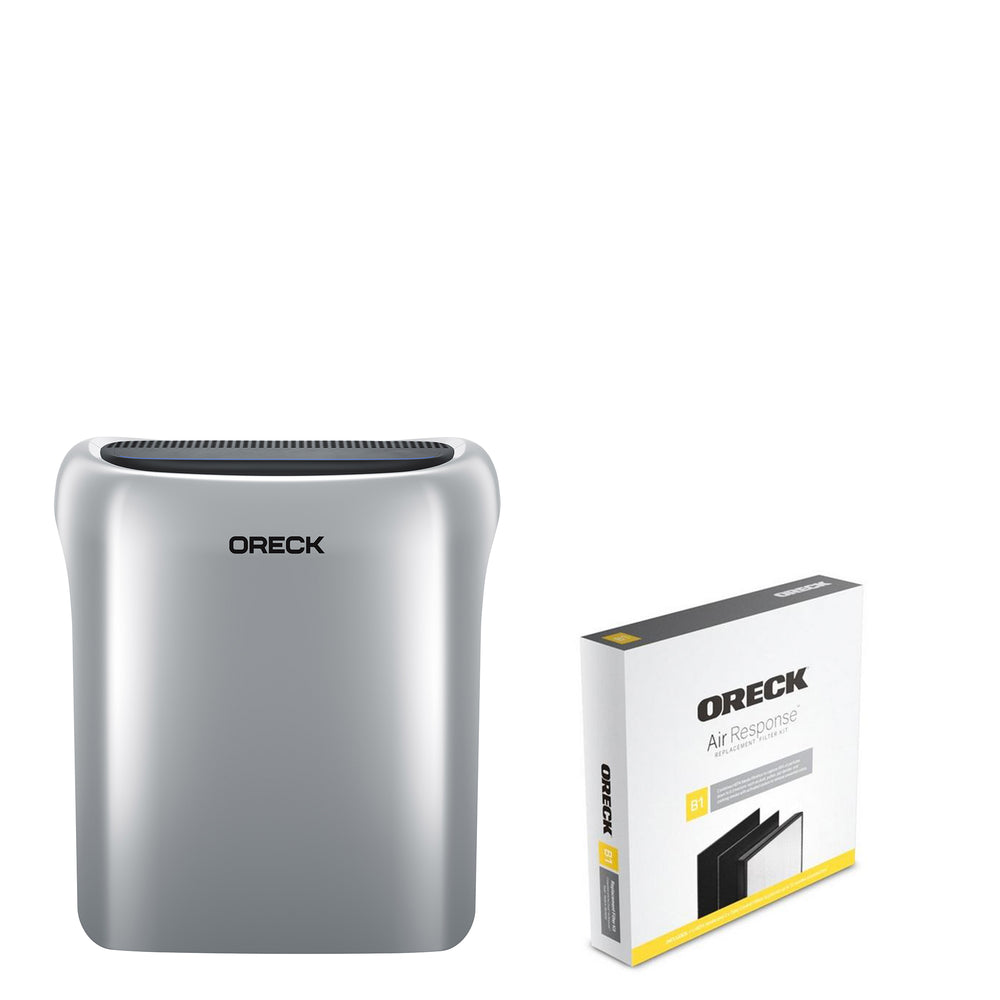
Credit: oreck.com
Extending The Lifespan Of Air Purifiers And Filters
Proper maintenance and cleaning techniques are crucial in extending the lifespan of air purifiers and their filters. Regularly cleaning the pre-filter is essential to prevent dust and other particles from clogging the unit. Additionally, replace the filters as recommended by the manufacturer to ensure optimal performance. Using air purifiers at the recommended settings will help avoid excessive wear and tear. It is important to follow the manufacturer’s guidelines for the specific model to maximize the lifespan of the unit.
Avoiding exposure to excessive dust and pollutants can also help prolong the lifespan of air purifiers and filters. This can be achieved by keeping windows and doors closed, using doormats to trap dirt and debris, and regularly vacuuming and dusting the room. By minimizing the amount of dirt and pollutants in the air, the filters can operate more efficiently and last longer.
Frequently Asked Questions For How Long Do Air Purifiers Last, Including Filter Lifespan?
How Long Do Filters Last In Air Purifiers?
Air purifier filters typically last between 3 to 6 months, depending on usage and air quality. Regularly replacing filters ensures efficient air purification.
How Often Do You Need To Replace A Filter Purifier?
The frequency for replacing a filter purifier depends on the manufacturer’s guidelines, but in general it’s recommended to replace it every 3 to 6 months. Regular replacement ensures optimal performance and maintains clean and healthy air quality.
When Should I Replace My Air Purifier?
Replace your air purifier when its filters are no longer effective, typically every 6-12 months depending on usage. Look for signs like reduced airflow or increased allergens. Regularly maintaining and cleaning your air purifier can extend its lifespan. Make sure to follow manufacturer’s recommendations for replacement frequency.
What Is The Life Expectancy Of A Hepa Filter?
A HEPA filter typically lasts for about 6 to 12 months, depending on usage and environmental conditions. Regular maintenance can help prolong its lifespan.
Conclusion
To summarize, the longevity of air purifiers, including the lifespan of their filters, varies depending on several factors. Regular maintenance, proper usage, and the quality of the air purifier itself play crucial roles in determining how long it will last.
Understanding the recommended filter replacement schedule is essential for ensuring optimal performance and improved indoor air quality. By following these guidelines, you can maximize the lifespan of your air purifier and enjoy clean and healthy air in your living spaces.
